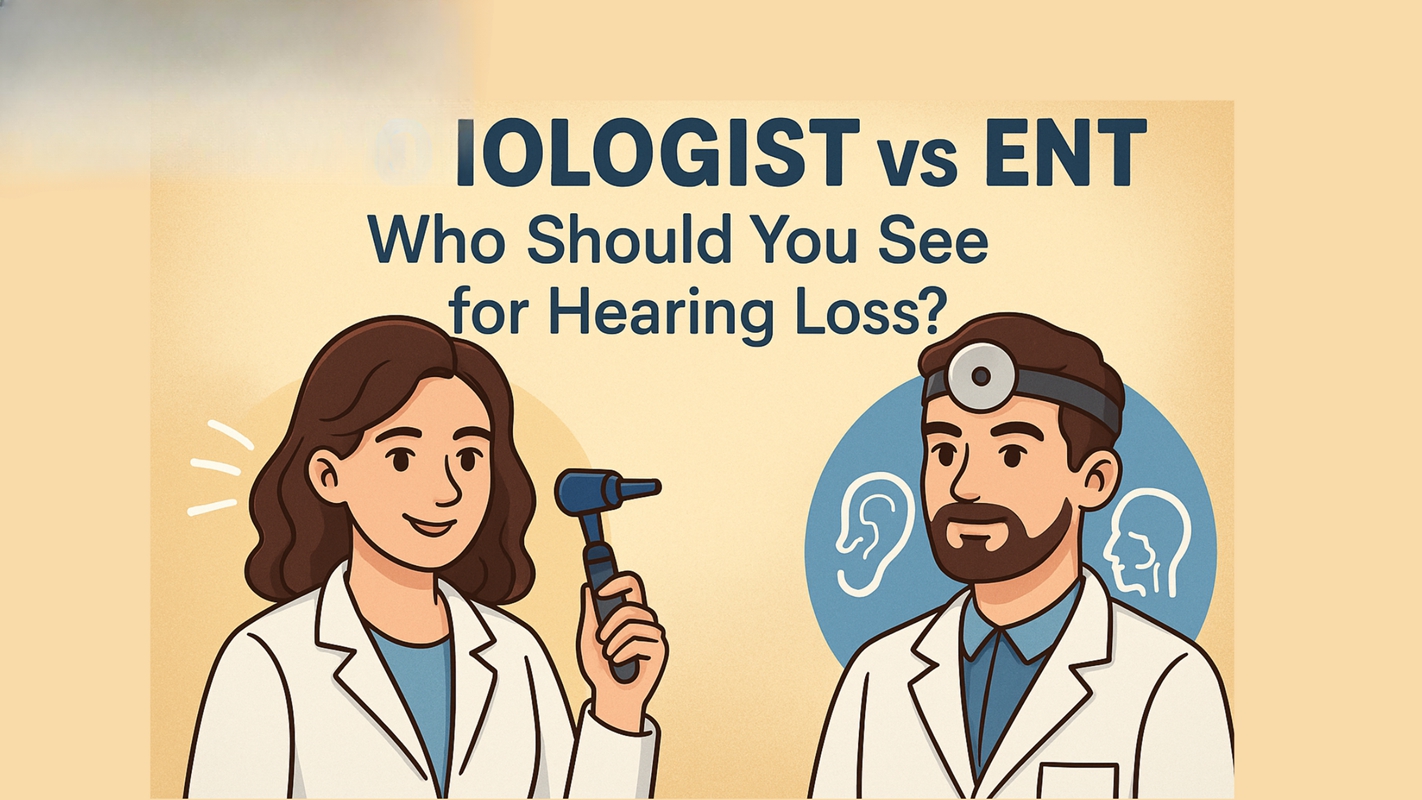
Audiologist vs ENT: Who Should You See for Hearing Loss?
Hearing loss can affect anyone — from young children to senior citizens. If you're noticing signs of hearing trouble like difficulty understanding speech, ringing in your ears (tinnitus), or frequently increasing TV volume, you may be wondering.
Should I visit an Audiologist or an ENT specialist?
? What is an Audiologist?
An audiologist is a hearing healthcare professional trained in:
Diagnosing hearing loss
Recommending and fitting hearing aids
Managing tinnitus (ringing in the ears)
Testing balance and inner ear function
Providing aural rehabilitation (therapy to improve hearing ability)
They hold specialized degrees (like Au.D. or MSc Audiology) and focus solely on non-medical hearing care.
? What is an ENT?
An ENT (Ear, Nose, and Throat doctor), also called an otolaryngologist, is a medical doctor.
Treats medical conditions related to the ear, nose, and throat
Performs surgeries (e.g., ear infections, cochlear implants, tumors)
Manages severe or sudden hearing loss due to infections or trauma
Diagnoses structural ear issues (e.g., perforated eardrum)
ENTs are surgeons and physicians, capable of both diagnosis and medical treatment.
? So, Who Should You See First?
Here’s a simple guide to help you decide:
✅ See an Audiologist if you:
Have gradual hearing loss
Need a hearing test or hearing aids
Experience ringing in your ears (tinnitus)
Need help with hearing device settings
Have trouble understanding speech in noise
✅ See an ENT if you:
Have ear pain, discharge, or infection
Experienced sudden hearing loss
Feel dizziness or vertigo
Have a visible injury or swelling
Suspect structural problems in your ear
? Tip: Many ENT clinics and hearing centers work with both audiologists and ENT doctors as a team to give you the best care.
What’s the Difference Between an Audiologist and an ENT?
Living with hearing loss is challenging. The condition can make it difficult to communicate with family and friends, making many patients feel isolated. People without hearing problems can become frustrated for having to constantly repeat themselves or feel their words have gone unheard, making those with hearing issues feel like they are a burden. Either circumstance can leave patients feeling further removed and disconnected from their social circles, which is why seeing an ENT or audiologist is crucial.
However, which professional do you see when dealing with hearing loss? Is an ear, nose, and throat doctor the right person, or is it best to visit a hearing specialist, an audiologist? The answer can get confusing. Still, it is vital to see the correct professional to get a diagnosis and treatment options as soon as possible and limit the psychological, social, and medical symptoms that can come with hearing loss.
? Final Thoughts
Both audiologists and ENT doctors play essential roles in diagnosing and treating hearing loss — but their specialties are different.
If you're unsure where to start, visiting an audiologist for a hearing test is often the first step. If they notice something medical, they will refer you to an ENT.
? For a full breakdown of hearing aid prices by model and features, you can visit HearUp USA’s official price guide.
The above is the interpretation of Hearing Loss: When to See an Audiologist vs. an ENT provided by Chinese hearing aid supplier Shenrui Medical. Link https://www.srmcm.com/Blog/Hearing-Loss-When-to-See-an-Audiologist-v.html of this article is welcome to share and forward. For more hearing aid related information, please visit Blog or take a look at our Hearing aids products















